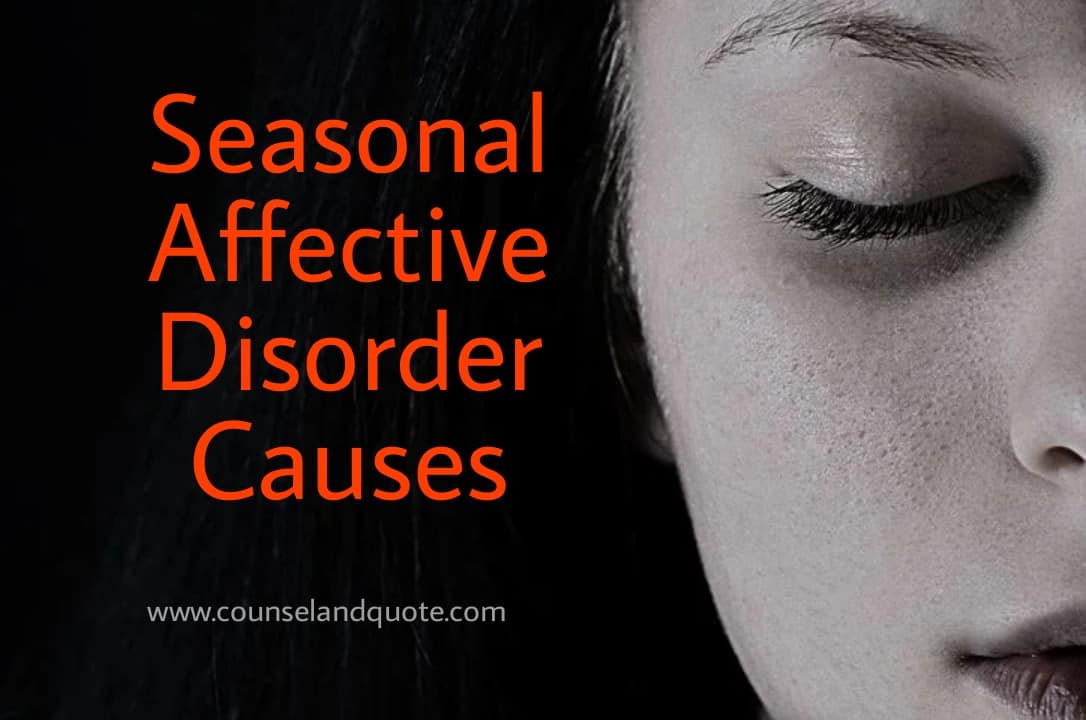Seasonal Affective Disorder Causes are yet not clear but it does have certain theories that are considered equally responsible for Seasonal Affective Disorder.
In this article, we’ll look for all the probable Seasonal Affective Disorder Causes.
American Psychological Association states Seasonal affective Disorder as, “Seasonal affective disorder (SAD) is a type of depression that lasts for a season, typically the winter months, and goes away during the rest of the year.”
This is a seasonal kind of depression that affects the person’s overall well-being. It drives your thoughts, feelings, and behavior according to season.
Table of Contents
What Is Seasonal Affective Disorder?

It is a seasonal depression usually occurring in the fall or winter and then diminishing at the arrival of spring or summer. There is also a summer depression that commences in spring or summer and ends in fall or winter, though it’s a rare type.
We, being humans, naturally experience several variations of physical, mental, and emotional changes at the onset of different seasons.
“A season doesn’t stay just out of your window, it also has a residence within your flesh and bone.”
To an extent, everybody moves more or less by the changes in the seasonal patterns but, when it starts getting out of proportion, that’s where the real trouble starts.
Now, we’ll move towards the Seasonal Affective Disorder Causes.
Seasonal Affective Disorder Causes
Causes work as a catalyst for any disease. They are the very foundational reasons and, because of them, any disorder can engulf you.
So, if we know them in advance and adopt preventive measures against them, they can be avoided or treated in the best possible manner.
Let’s head to the Seasonal Affective Disorder Causes and understand each of them in detail.
1 – Family History

Heredity plays a part in deciding whether you can catch seasonal Affective Disorder easily or not. If you have a family history like any member in your family or blood relations was or is suffering from Seasonal Affective Disorder or any kind of psychological condition, then you are much more prone to it.
And we also need to keep in mind that it’s not always true that means you might have a vulnerable family history of SAD but fortunately, you don’t have it similarly maybe you are the first one in your bloodline to have it.
Family History is one of the Seasonal Affective Disorder Causes that signifies you, to an extent, are much more exposed to it than others with no family history.
2 – Biological Rhythm/Circadian Cycle
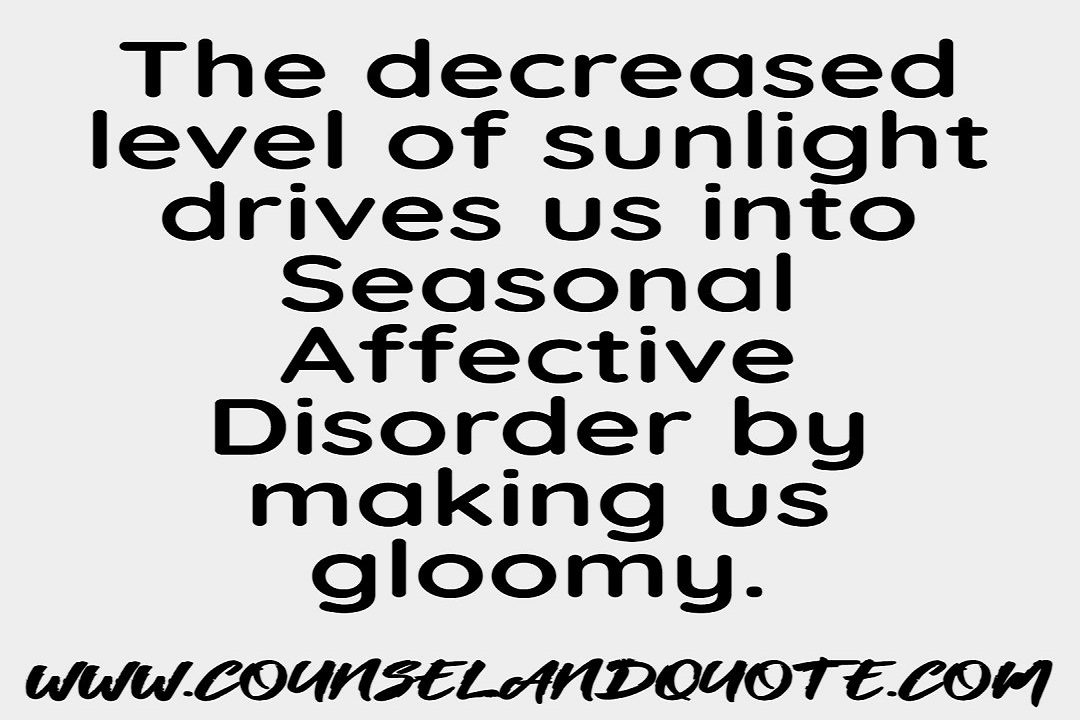
Your internal biological clock is a great deciding factor for your health. If it is out of pattern, your whole body will lose its rhythm. So it’s really important for it to function properly for us.
In winters and fall, the duration of sunlight is low than in summers because Earth is tilted 23.4 degrees which defines the exposure and duration of sunlight to different parts of the world.
The decreased level of sunlight drives us into Seasonal Affective Disorder and depression by making us gloomy.
Our sleep and mood are a part of this cycle, if one thing is negatively affected it does leave a bad impression on the other part thus, making it harder to function nicely.
3 – Low Vitamin D

Sunlight is a major source of Vitamin D and Vitamin D is one of the boosters for Serotonin, a key hormone for happiness and mood stabilizer that can obviously reduce depression and anxiety.
People with low Vitamin D may have chances to be affected by depression, schizophrenia, and Seasonal Affective Disorder.
You need to get the proper amount of Vitamin D to prevent yourself from SAD.
In winters or in countries far away from the equator where there is a dearth of appropriate sunlight, Vitamin D deficiency is more common thus, making people more open to Seasonal Affective Disorder.
4 – Low Serotonin
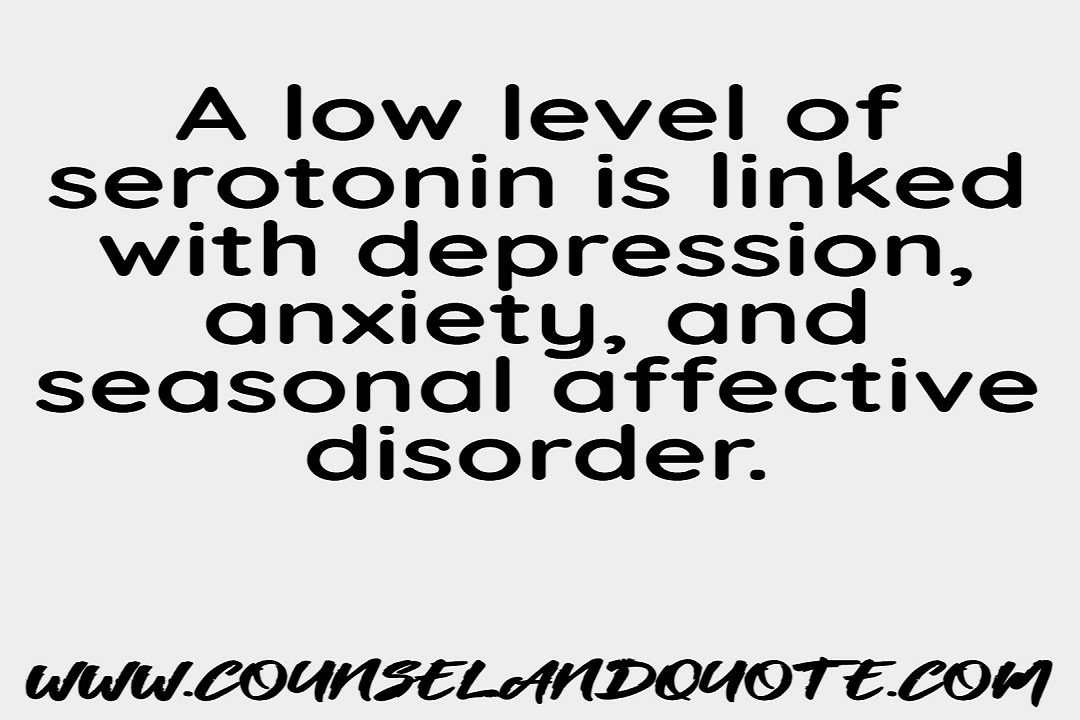
Serotonin is a hormone that is secreted by the Pineal gland and is found in the brain. A low level of serotonin is linked with emotional and behavioral issues because it helps regulate happiness, mood, and anxiety level.
Serotonin imbalance cause trouble, high level causes serotonin syndrome and low level is responsible for depression, anxiety, obsessive-compulsive disorder, seasonal affective disorder, and suicidal behavior.
That’s how Serotonin plays a part in our well-being.
5 – High Melatonin
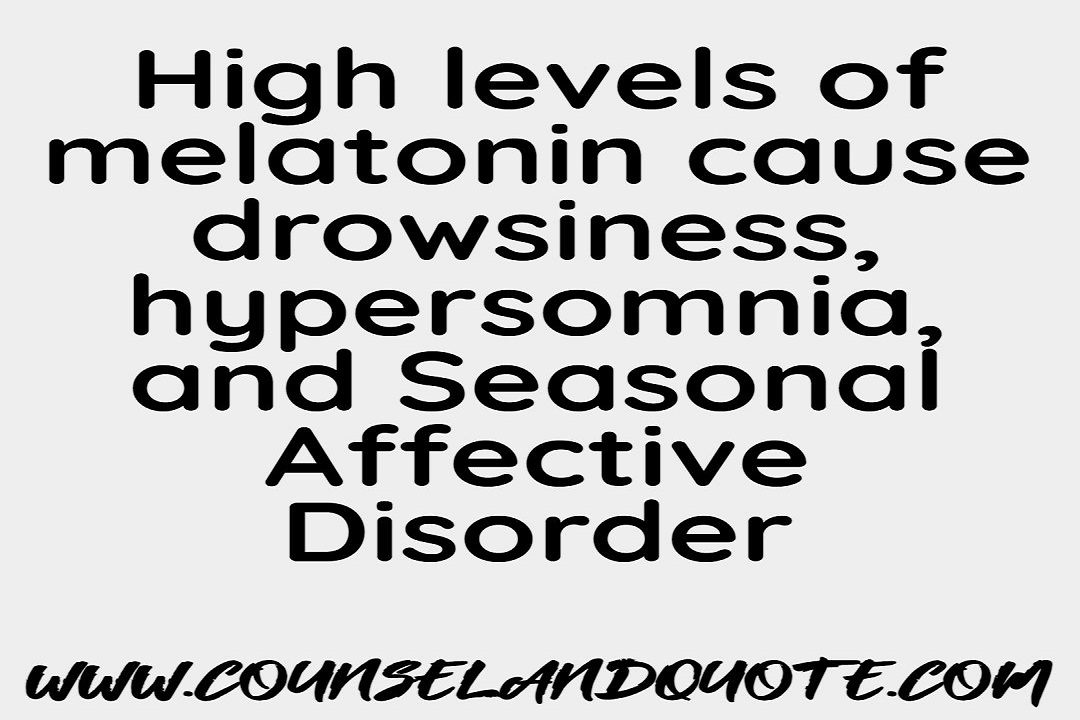
Melatonin is a hormone released by the Pineal gland and more of it is released in the night when the light diminishes to reach our eyes.
Melatonin is involved in the sleep-wake cycle and circadian rhythm. High levels of melatonin cause drowsiness, hypersomnia, and reduced core body temperature.
In winters, lack of sunlight boosts the level of melatonin keeps you sluggish all day long, and contributes to one of the symptoms of Seasonal Affective Disorder.
Low levels of melatonin make it difficult to sleep and extremely high levels of it can cause headaches, fatigue, and affect reproduction.
6 – Equator Is Too Far
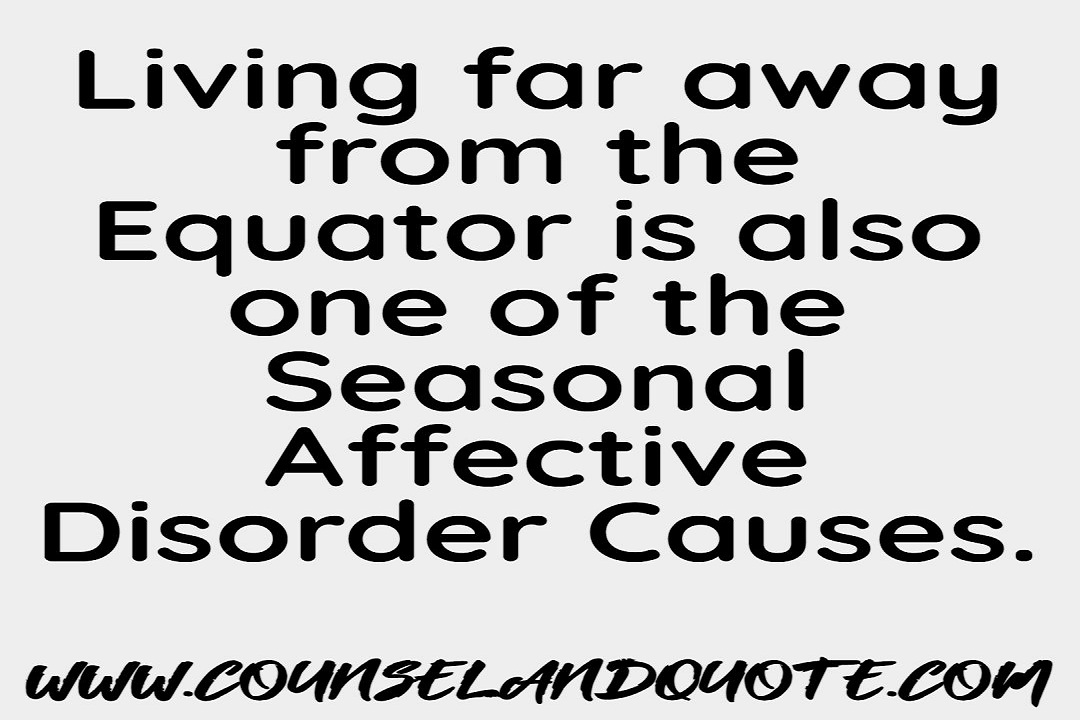
Living far away from the Equator is also one of the Seasonal Affective Disorder Causes. Geographically, the Equator receives the greatest amount of sunlight.
Sunlight is responsible for both apparent and underlying causes of SAD.
The very characteristics of the rays of the sun are bright, vibrant, cheerful, and lively and affect positively because of its physical features and its properties are good for us emotionally and mentally to an extent.
7 – You Have Other Mental Illness
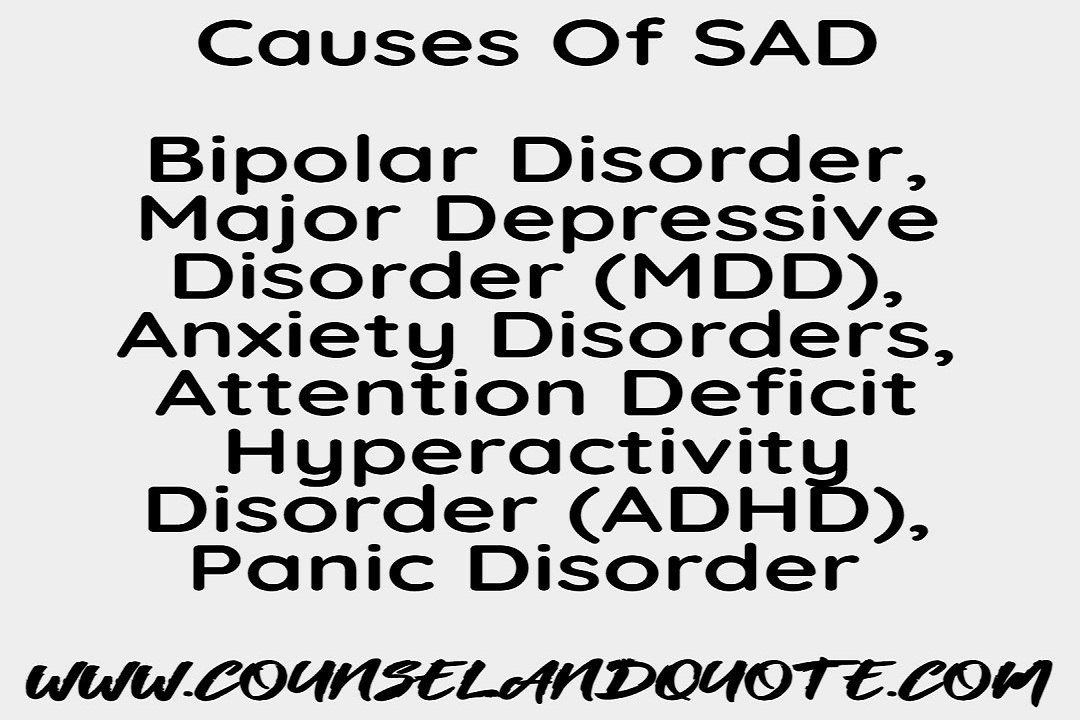
If you are already suffering from any mental health conditions then can work as a cause of SAD too. They will work as a catalyst in your Seasonal Affective Disorder.
Below I’ll put them down one by one for your convenience.
- Bipolar Disorder
If you have this mood disorder then you are much more likely to have SAD.
- [Bipolar Disorder Symptoms| A Deep Analysis]
- Major Depressive Disorder (MDD)
It is also known as clinical depression and is a kind of mood disorder. Some of its symptoms include depression, fatigue, changes in weight and sleep, and many more.
Having Major Depressive Disorder also makes you open to Seasonal Affective Disorder.
- Anxiety Disorders
This can make you vulnerable too.
- Attention Deficit Hyperactivity Disorder (ADHD)
Having ADHD increases the probability for you to have SAD.
- Panic Disorder
You can have Seasonal affective Disorder because of Panic Disorder too.
8 – Relatives Have Other Mental Illness
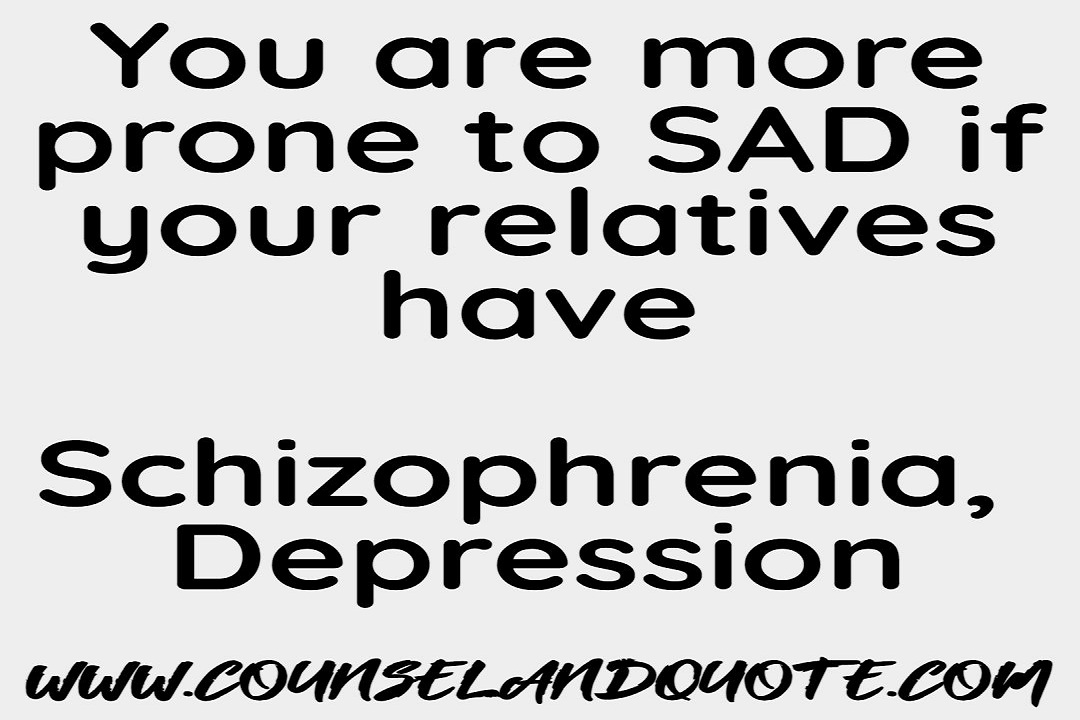
This is also one of the Seasonal Affective Disorder Causes, your genes and environment carry so many things to you and one of them is SAD.
You may have a family history of people suffering from other mental health conditions that can contribute to your Seasonal Affective Disorder.
Below are two of them that might be held responsible.
- Schizophrenia
Your relatives with schizophrenia can also give you SAD.
- Depression
Your people who have had depression can also transfer you Seasonal Affective Disorder.
This article sums up all the probable Seasonal Affective Disorder Causes that can work as triggers for your SAD. Read them calmly and see what steps you can take to prevent yourself and your loved ones from falling into Seasonal Affective Disorder.
Causes are always significant because they work as an open window from where any disease can enter but if you know that your window is open (causes) you can block its path by shutting it (preventing it).
Though there is not any stipulated list of Seasonal Affective Disorder Causes above are all the predictable and believable theories regarding the causes responsible for SAD.
I hope you’ll get benefit from this article and will try to avoid the disorder by providing yourself with proper care.
Kindly leave your comments for further improvements. Please share it with as many people as you can for the greater good of humanity.
Thank You!
